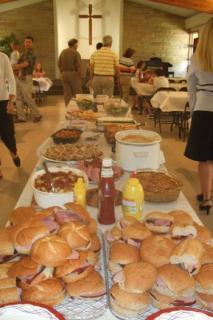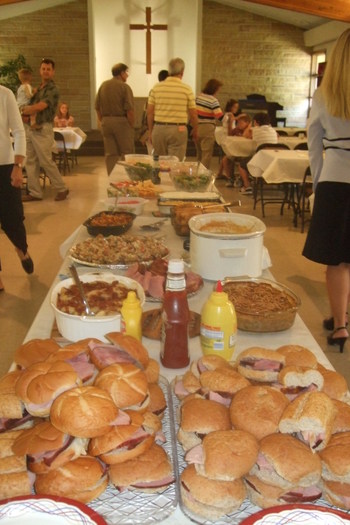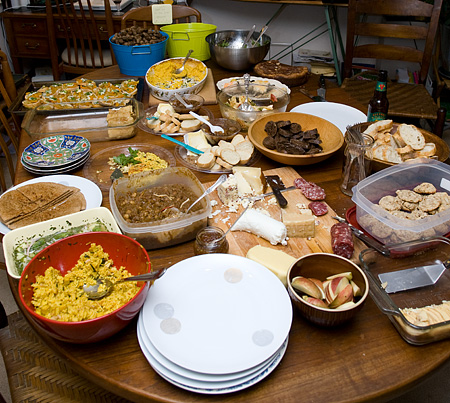Foodborne illness happens. It sucks when it does.
It’s pretty much never intentional; not never, but rare.
In 1986, two Rajneeshee commune members were indicted for conspiring to tamper with consumer products by poisoning food after over 750 community members in The Dalles, Oregon became ill with salmonellosis in 1982.
It sucks that twelve Alabamans ended up with what looks like foodborne illness after a holiday party this week. It’s weird that the Montgomery Advertiser coverage twice says that the cases probably weren’t as result of intentional contamination.
No foul play is suspected, and it looks like it is a case of accidental food poisoning, said Capt. Jeff Hassell, who commands the Prattville Police Department’s investigations division. Kinedyne Corporation, which operates a plant in the 1100 block of Washington Ferry Road, held its holiday lunch Friday. About an hour after eating, several employees complained of feeling sick, Hassell said.
Three employees were taken by ambulance to Prattville Baptist Hospital’s emergency room, with a fourth employee going by private vehicle, said Ernie Baggett, director of the Autauga County Emergency Management Agency.
“We are investigating because it is an unusual situation, so many people becoming sick so quickly,” Hassell said. “Right now, we have nothing to point to an intentional act. We are looking at improperly cooked chicken as the most likely source for a food poisoning situation.”
“It was a pot luck dinner,” Baggett said. “No one became seriously ill, but a few employees wanted to go to the hospital just to get checked out.



 are on the church’s property, said Deborah Durkin of the Minnesota Department of Health.
are on the church’s property, said Deborah Durkin of the Minnesota Department of Health.
 Baptist church caught what media described as a stomach virus, including the pastor’s family.
Baptist church caught what media described as a stomach virus, including the pastor’s family. Umpires and inspectors alike are not there to control the game, just to ensure it is being played right.
Umpires and inspectors alike are not there to control the game, just to ensure it is being played right..jpg) tortillas, high-sugar pies and pastries, high-sugar jam and jellies, dry mixes (made from commercial ingredients), candy and fudge. Those foods do not support the rapid and progressive growth of infectious and toxicogenic microorganisms, including Clostridium botulinium, responsible for foodborne disease.
tortillas, high-sugar pies and pastries, high-sugar jam and jellies, dry mixes (made from commercial ingredients), candy and fudge. Those foods do not support the rapid and progressive growth of infectious and toxicogenic microorganisms, including Clostridium botulinium, responsible for foodborne disease. I told
I told .jpg) A total of 11 people have been hospitalized, and DHEC officials believe there are about 125 people who sought physician care for gastro-intestinal illness symptoms in the area, Beasley said.
A total of 11 people have been hospitalized, and DHEC officials believe there are about 125 people who sought physician care for gastro-intestinal illness symptoms in the area, Beasley said..jpeg) State health officials said 150 people were attending the event when the illness broke out Saturday night, WMUR-TV of Manchester, N.H., reported Monday.
State health officials said 150 people were attending the event when the illness broke out Saturday night, WMUR-TV of Manchester, N.H., reported Monday.